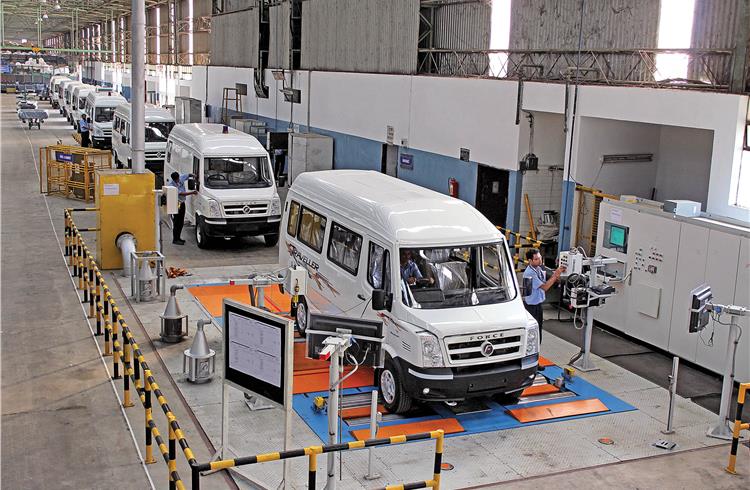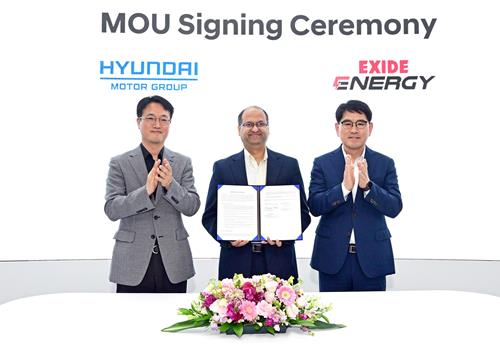Force Motors develops electric Traveller minibus
A major player in the minibus and panel van segments, the Pune-based OEM has started developing electric vehicles (EVs).
Force Motors, one of the oldest automobile companies in India, is preparing to ride the wav of electric mobility. A major player in the minibus and panel van segments, the Pune-based OEM has started developing electric vehicles (EVs).
"We have created an electrical engineering team and the first electric vehicles are under try out, but it’s a long way from commercial production," Dr Abhay Firodia, chairman, Force Motors, told Autocar Professional.
The electric mobility team at Force Motors has around 35 members, and the first of Force Motors' electric vehicles could be ready for launch in about three years. During this period, the company could invest a hundred or more crore of rupees.
Dr Firodia believes that the adoption of EVs will be faster in urban areas as the country prepares for mass-scale electric mobility. Therefore, the first of the company's EVs could be its popular Traveller minibus. Its Trax family of utility vehicles, which primarily run in rural and semi-urban areas, isn't likely to go electric anytime soon.
The product and market is one set of factors that would determine the adoption of electric mobility. Dr Firodia says that cost of batteries and the ecosystem for battery usage would also affect the chances of success for mass-scale electric mobility. NITI Aayog, the government policy think- tank, has mooted the idea of swappable batteries. "But then what is the cost, how does one access it/integrate it into the vehicle, these issues become important. These are unclear at this point in time," says Dr Firodia.
Along with a clearly laid out policy, setting up of EV charging infrastructure and reduction in prices of EV batteries are also necessary for mass-scale electro-mobility to take off in India.
Dr Firodia doesn't have a number for a threshold price but has a simple calculation. "It (electric mobility) can't really be successful unless it competes with fossil fuel in per kilometre cost," he says.
File photo of the Force Traveller production line at the Pithampur plant
RELATED ARTICLES
IIT Bombay inaugurates Arun Firodia Research Floor
IIT Bombay, one of India’s top technical and research institutions, honours Kinetic Group chairman Dr Arun Firodia, one ...
Maruti Suzuki expands capacity at Manesar plant by additional 100,000 units
New assembly line at Plant A expands total manufacturing capacity at the Manesar plants to 900,000 units per annum. Alon...
Hyundai and Kia partner Exide Energy to produce LFP batteries in India
Partnership with Exide Energy enables Hyundai Motor and Kia to equip future EVs in the Indian market with locally produc...





 05 Oct 2017
05 Oct 2017
 50213 Views
50213 Views





 Autocar Pro News Desk
Autocar Pro News Desk




